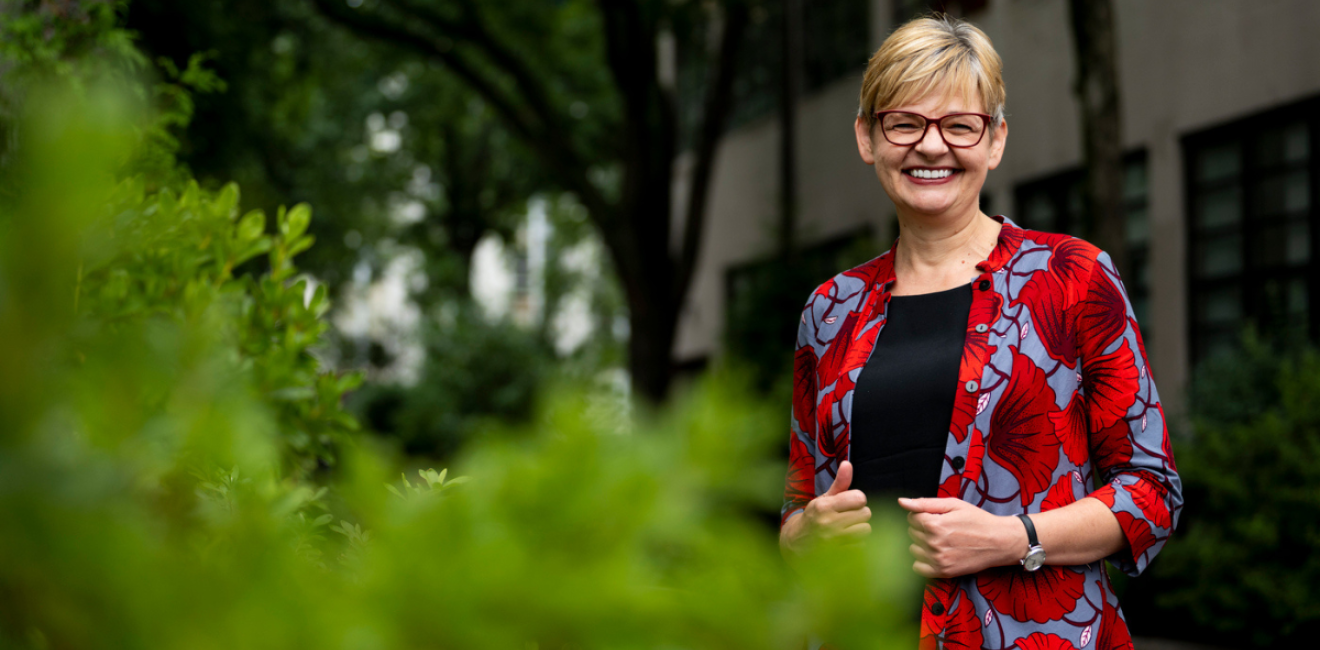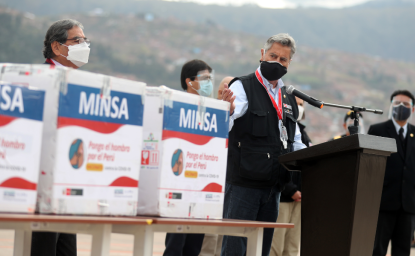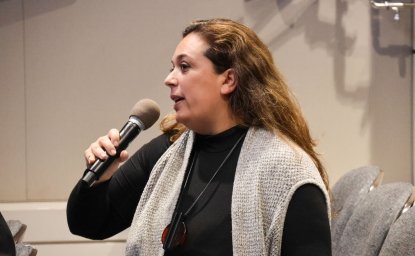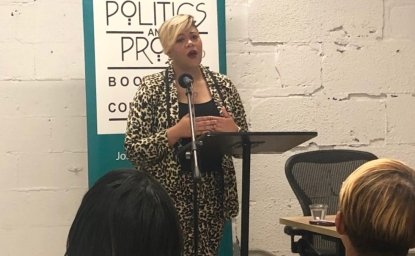
A blog of the Wilson Center

Dr. Maria Ivanova's lifelong work in global environmental governance is dedicated to upholding humanity's responsibilities from one generation to the next. Her upbringing makes the origins of this calling clear.
Ivanova was born in Plovdiv, Bulgaria: Europe’s oldest living city and a UNESCO World Heritage site. “Anywhere that you dig into that city, there is a layer of history.” She attributes her interests in both the global environment and the historical roots of human decision-making to growing up on soil that has borne the rise and fall of so many civilizations.
Ivanova recalls history unfolding before her eyes with the fall of the Berlin Wall while she attended her English-language high school. Ivanova would later attend Mount Holyoke College in Massachusetts as part of the first cohort of Bulgarian students to receive full scholarships to US universities.
Through its interdisciplinary approach to the oceans, the Williams-Mystic Maritime Studies Program transformed her appreciation of how bodies of water connect and divide, and her understanding about how we approach environmental problems.
She continued her studies at Yale, earning master’s degrees in international relations and environmental management, as well as a PhD, and went on to co-create the Global Governance and Human Security PhD program at the University of Massachusetts, Boston. She is currently the director of and a professor for the School of Public Policy and Urban Affairs at Northeastern University.
“I’m somewhat of an accidental academic,” says Ivanova, having initially favored policy work before championing the role of education in redefining practice. Academia has the power “to shape the values…and the thinking of young people so that we can reshape the systems of institutions and governance structures that we have.”
Her absorption into academia led her to the Wilson Center while a faculty member at the College of William and Mary. She found Wilson to be “an amazing space where one can make connections. And you have time for yourself but, importantly, you have time to see the bigger picture and to draw the lines between various dots.”
Ivanova has always had her eye on a bigger picture that is comprised of many systems and parts. “I study ideas, institutions, and individuals,” she says. Supporting everything from student initiatives to small-state policy work in East Africa to the United Nations Environment Program, Dr. Ivanova’s work spans the entire spectrum of environmental education, governance, and practice.
While at the Wilson Center, Dr. Ivanova pursued her project, Changing Course: Reclaiming US Environmental Leadership, born out of a timely interest in the US’s struggle to regain its global governance footing during the early 2000s. Access to individuals working in federal government, such as Ambassador John McDonald whose work was pivotal in founding the United Nations Environment Program (UNEP), was also instrumental to Ivanova’s work. She pivoted her project to be broader than the US in 2009, holding the Global Environmental Governance Forum that brought together all of history’s UNEP executive directors in one room for the first time ever.
These days, Dr. Ivanova works in plastics. Having served on the Rwandan delegation to the UN Environment Assembly in 2022, she negotiated a new global agreement on plastics as part of her Reimagining Environmental Multilateralism Initiative that sheds light on the importance of small states in the international arena. Continuing this mission, Ivanova feels privileged to contribute to negotiations over a new global treaty and pull her students and colleagues into those discussions.
Meanwhile, Dr. Ivanova has begun exploring the power of art in academia. She is working with Rwandan artist Innocent Nkurunziza who uses canvases made from renewable tree harvesting in his work. His method prevents deforestation by shaving bark from tree trunks and wrapping them in banana peels for regrowth. “Art has the power to jolt us into awareness,” says Ivanova.
Ultimately, Dr. Ivanova hopes to convey that each person has power and responsibility for both individual and collective action, and we are obligated to be both good ancestors to those who come after us, and good neighbors to those we coexist with. From her upbringing in Europe’s oldest city to her career’s constant immersion in global, individual and institutional spaces, Ivanova is a living, breathing testament to her assertion that, “we are here because of others who came before us throughout history. We have to respect them, and we have the responsibility to move that needle.”
This blog was researched and drafted by Bella Wexler.
Explore More in Scholar & Alumni Spotlight
Browse Scholar & Alumni Spotlight
Dr. Guadalupe Correa-Cabrera: Crossing Borders in Research and Policy

Former Peruvian President Francisco Sagasti: Academic Turned Politician

